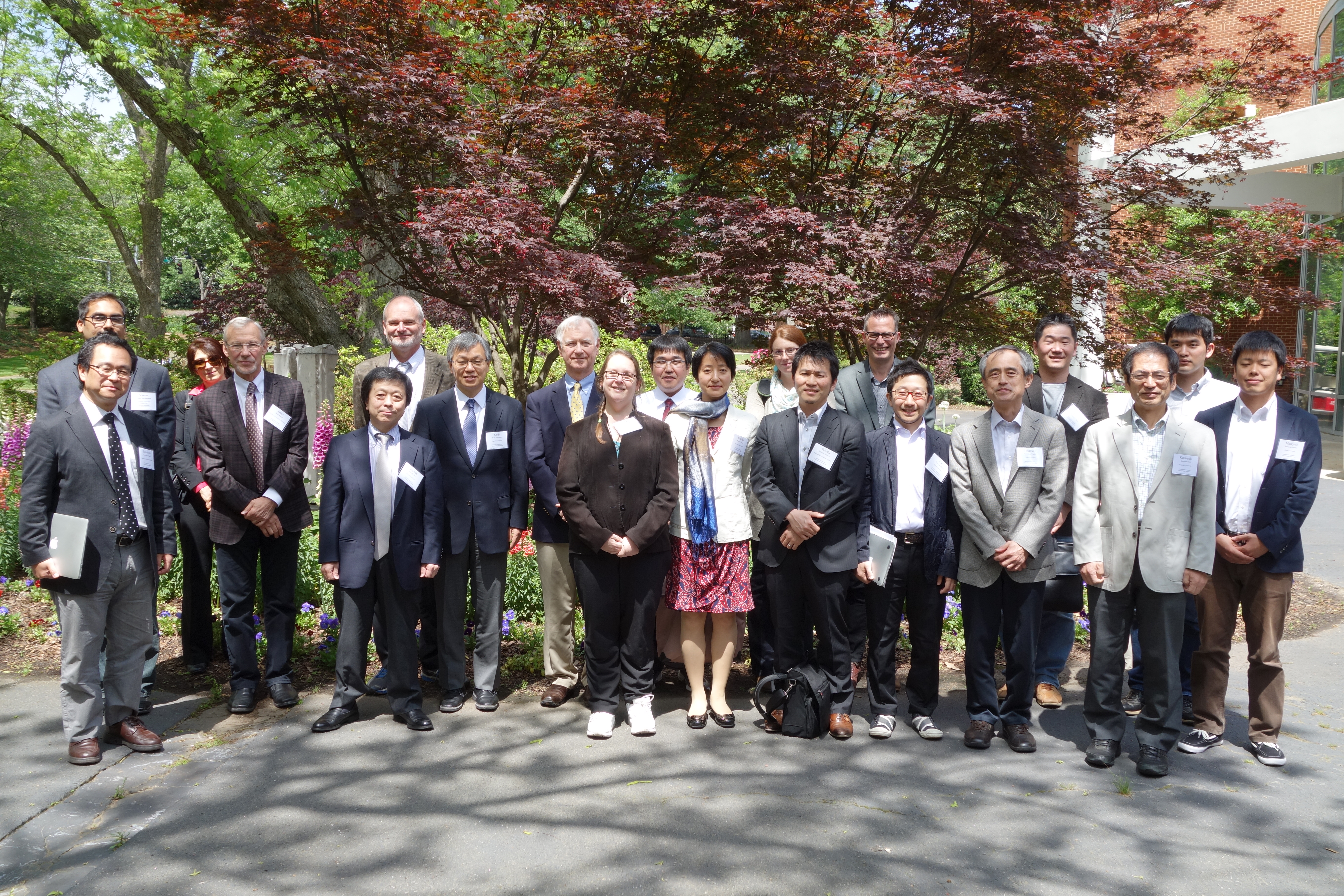CTEGD Hosts Japanese Delegation During 25th Annual Symposium

The Molecular Parasitology and Vector Biology Symposium, organized by UGA’s Center for Tropical and Emerging Global Diseases (CTEGD), is a leading regional scientific conference held each spring. The symposium provides an opportunity for researchers in the fields of parasitology and vector biology to present their work to colleagues from The University of Georgia and other institutions in Georgia, Florida, Alabama, Tennessee and South Carolina.
On April 28 and 29, we celebrated the 25th year of the symposium. The symposium was expanded to two days in order to accommodate a special delegation of Japanese investigators and a reception.
This year’s symposium had a record 150 attendees from institutions such as The University of Tennessee-Knoxville, University of South Florida, Wake Forest University and University of Virginia. The two day event featured 26 speakers, 2 keynote addresses, and 31 poster presentations. You can view the abstract book here.
The Japanese delegation represented such institutions as Proteo-Science Center at Ehime University, National Institute of Infectious Diseases, National Center for Global Health and Medicine, Nagasaki University and The University of Tokyo. During the symposium, they provided a number of talks that focused on malaria vaccine research, Entamoeba histolytica, and Trypanosoma brucei (which causes African sleeping sickness) drug development.
Takafumi Tsuboi is the director of the Proteo-Science Center at Ehime University, Japan. He was the keynote speaker on Wednesday, April 29. Dr. Tsuboi’s research focuses on development of a malaria vaccine using cutting edge wheat germ cell-free protein synthesis (WGCFS) technology. His talk focused on WGCFS as an innovative technology for post-genome malaria vaccine research.
James Kazura professor of international health, medicine and pathology at Case Western Reserve University School of Medicine, was the keynote speaker on Tuesday, April 28. Dr. Kazura’s research focuses on advancing fundamental knowledge of the mechanisms underlying susceptibility to infection and the pathogenesis of disease due to malaria and chronic worm infections endemic in tropical areas. The ultimate goal is to use this knowledge to develop preventative and interventional strategies that are culturally appropriate and cost effective.
In addition to research, Dr. Kazura has been active in promoting tropical medicine as a scholarly and scientific discipline through participation on numerous NIH and WHO committees and other venues such as editorial service on major tropical disease journals. he is highly committed to the training and education of junior colleagues from the United States and developing countries through NIAID training grants and Fogarty International Center sponsored training grants awards in collaboration with colleagues from Kenya and Papua New Guinea.
James Kazura is also the director of the Center for Global Health and Diseases and director for International Affairs in Health Sciences. His talk was about the paradoxes on the road to malaria elimination.
If you would like to receive notices about next year’s symposium, please sign up to our mailing list.
